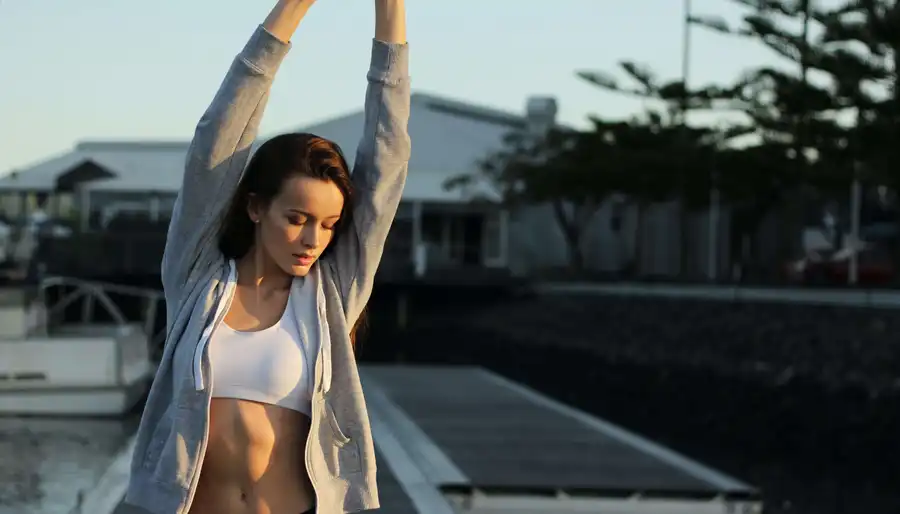The importance of stretching
04 March 2021

Stretching our muscles is very important. But why? Some people think that stretching is something we do before or after sports - this is important of course, however, we use our musculoskeletal frame for literally everything we do. From driving, to working behind a desk, to making dinner, to climbing a mountain (of washing or quite literally) our physical body is allowing that to happen.
Stretching basically lengthens our muscles
When muscles contract they bring their origin (where they start) closer to their insertion (where the muscle finishes). When a muscle or muscle group are shortened (for example the muscles at the back of the thigh which are the hamstrings are held ‘on contraction’ or shortened when we sit, thus when we sit for too long the muscles become shortened) they lose some or a lot of their flexibility, and can pull on joints causing pain. This is one of the reasons stretching is beneficial to the body.
The science
Muscles are amazing structures; we are born with all of the muscle fibres we will ever have, we can grow our muscles in size, but we cannot make more muscle, or new ones for that matter. This is one of the reasons we need to look after our muscles (and we have over 600 muscles in our body). Muscles are arranged in layers, and they contract by something called the sliding filament theory - this theory says that the Myosin fibres of the muscle (which are thick) slide along the Actin muscle fibres (which are thin), muscle contraction occurs when the myosin heads hook into the actin fibres, almost like a rowing boat.
What happens when our muscles get too tight?
In short, they are at increased risk of injury, performance of the muscles is decreased, and they fatigue quickly. Neck muscles when too tight can be a cause of headaches. Lots of things can shorten muscles / muscle groups; our posture, our occupational demands, stress (a major player), sports, injury and degenerative joints to name a few.
So what can be done?
There are lots of ways of recovering injured muscles - massage, taping them with specialist sports (kinesiology) tape, and stretching. The beauty of stretching is that it's something that is free, and you can do this daily and really drive your own recovery, or help prevent muscles becoming shortened. There are lots of ways of stretching, from lengthening your muscle groups by taking the muscle origin and insertion away from each other statically, or ballistically (not my preferred way of stretching I must say), to something called PNF stretching, or aids can be used such as spiky massage balls or foam rollers.
We know that stretching can help some injuries – it is important that you have specialist advice on exactly what stretches to do. Stretching the muscles that are carrying an injured (be it a new or old) joint or a degenerative joint helps keep them able to compensate and support the skeletal frame.
Stretching, as well as being good for our physical body, is also very good for our mind. When we are stressed for example, this puts our body in something called the ‘fight / flight’ response – we are supercharged with adrenaline, which prepares our muscles for action. Too much of this can cause our muscles to become too tight (hypertonic) and thus short, as well as commonly causing muscle aches and pains.
Sports
It is really important that you exercise, the benefits are well known. It is important to prepare your body for sports and exercising, and just as important to thank your body after – stretch! Different sporting disciplines will use specific muscle groups more than other groups, thus the stretching should be focused and full of purpose.
So as we can see, stretching has so many benefits, for our amazing body to our wonderful minds. Do yourself a favour and stretch! Here at KOPI we design tailored stretch programmes to suit your individual needs, and ensure that anything prescribed is safe and effective.
If you have any questions please do not hesitate to contact the surgery: info@kibworthosteopaths.co.uk
- Written by Emily Coombes (B'Ost Registered Osteopath - 7416)